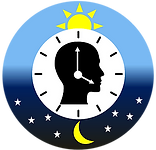Proposal on ending biannual clock change and implementing permanent time zones in the European Union
The Barcelona Declaration on Time Policies working group to the biannual clock change, with the support of the International Alliance for Natural Time, agreed on a concrete plan to end seasonal clock changes and suggests permanently establishing a more natural time in the EU. The key elements of the proposal are presented below.
Why is this Proposal key for Europe?
Europe faces a major problem: clocks are not aligned with solar time, leading to a misalignment between the social clock and natural time. As extensively demonstrated by the scientific community, time imbalance is detrimental to social welfare and has negative consequences on health, the economy, safety, and the environment. There is also a consensus across all relevant fields of research that alignment with solar time (natural time) would imply multiple benefits by facilitating the proper functioning of our circadian rhythms.
The scientific evidence shows that the European Union needs an urgent change in its time zone organization. In line with the expert voices, an easy and simple solution has been proposed to enable authorities to implement permanent time zones as close to solar time (natural time) as possible. Specifically, at the recommendation level, two different but complementary steps have been designed depending on the Member State.
Which are the Two Steps?
This proposal aims for political representatives and decision-makers to implement both steps.
- Step 1: Abolish the clock change to Daylight Saving Time (DST) in spring, remaining on the clock time used in winter and maintaining the current standard time.
Who: All EU countries.
Visualization of the results:
After this step, some countries — although to a lesser extent — would still experience a misalignment with their solar time due to their geographical location. For these, it is highly recommended for them to take step 2.
- Step 2: Seven countries should change their current standard time to their recommended time zone (the most geographically appropriate sun-based time zone). They would additionally turn back their clocks one last time by one hour in autumn, adapting to their new standard time.
Who: Greece, Belgium, France, Luxembourg, the Netherlands, Spain, and Ireland. They would adapt to:
- Greece → Central European Time Zone, UTC±1.
- Belgium, France, Luxembourg, Netherlands, Spain, Ireland → Western European Time Zone, UTC±0.
Finally, some political considerations will need to be made for those member states that have territories in different time zones (France and Corsica; and Continental Greece and the Greek islands). One possible solution is the one being applied in the case of Spain and the Canary Islands, which have different time zones. In some cases, if the territories are close, the same time zone may be used, even if it is not geographically correct. Specific solutions would need to be found for European territories outside the European continent.
Results:
Who is involved?
Considering the benefits of geographically correct time zones and the negative consequences of misaligned clocks:
- The EU Commission has the responsibility to reactivate the political process on this subject.
- The EU Member States have the responsibility to ratify the EU proposal (European Directive on Discontinuing seasonal changes of time), (1) agree to abolish the clock change, and (2) adopt the permanent time zones which are as close as possible to their solar time (natural time).
Indeed, both the European Commission and the Member States now have the opportunity to align social rhythms with biological rhythms, transforming the organization of time for the benefit of all Europeans.
When to do that?
In collaboration with experts affiliated with the Time Use Initiative and IANT, we advocate for the abolition of bi-annual clock changes no later than 2026.
We are actively engaging with various EU institutions and stakeholders to achieve this objective.
Recognizing the complexity of this issue, we acknowledge that even partial progress towards reducing time misalignment in Europe would be a significant achievement. This first step (abolishing the clock change to Daylight Saving Time (DST) in spring) would contribute to improving general welfare by addressing the negative impacts on health, productivity, and safety associated with clock changes.
Would you like to know more?
Frequently Asked Questions on Daylight Saving Time (DST)
Endorsers
If you are a representative of an organisation and agree with our proposal, you can endorse it by filling in this form. Your logo will be added to our current endorsers below.
Individual experts endorsing the proposal
If you are a researcher in a field related to solar or circadian times and their impact, and you would like to endorse our proposal, please contact us at info@timeuse.barcelona.
These are the researchers who are already endorsing our proposal:
- Martha Merrow, PhD, Institute of Medical Psychology, LMU of Munich (Germany)
- Till Roenneberg, PhD, Institute of Medical Psychology, LMU of Munich (Germany)
- Maria de los Angeles Rol de Lama, PhD, CronoLab, Department of Physiology, University of Murcia (Spain)
- Erik Herzog, PhD, Department of Biology, Washington University in St. Louis, Missouri (USA)
- Diego Golombek, PhD, Time and Experience Lab, San Andrés University, Buenos Aires (Argentina)
- Gonzalo Pin Arboledas, MD, Sleep Unit, Quirón Hospital Paediatric Unit, Valencia (Spain)
- Marijke Gordijn, PhD, Department of Chronobiology, University of Groningen (The Netherlands)
- Inge Declercq, MD, Multidisciplinary Sleep Disorders Centre, Antwerp University Hospital (Belgium)
- Virginie Gabel, PhD, COMETE Laboratory, University of Caen Normandy (France)
- Cátia Reis, PhD, Environmental Health Institute (ISAMB), Medicine Faculty, University of Lisbon (Portugal)
- Teresa Paiva, PhD, Environmental Health Institute (ISAMB), Medicine Faculty, University of Lisbon (Portugal)
- Anna Wirz-Justice, PhD, Centre for Chronobiology, Psychiatric Clinics, University of Basel (Switzerland)
- Johan Verbraecken, PhD, Multidisciplinary Sleep Disorders Centre, Antwerp University Hospital (Belgium)
- Bertus van der Horst, PhD, Rotterdam Erasmus University Medical Centre (The Netherlands)
- Roelof Hut, PhD, Department of Chronobiology, University of Groningen (The Netherlands)
- Karin van Rijn, MSc, Sleep-Wake Center SEIN, Zwolle (The Netherlands)
- Toine Schoutens, founder of Chrono Eyewear and FluxPlus light therapy, Tilburg (The Netherlands)
- Ilse De Volder, MD, Multidisciplinary Sleep Disorders Centre, Antwerp University Hospital (Belgium)
- Merijn van de Laar, PhD, Faculty of Health, Medicine and Life Sciences, Maastricht University (The Netherlands)
- Birgitte Rahbek Kornum, PhD, Department of Neuroscience, University of Copenhagen (Denmark)
- Klaus Martiny, DMSc, PhD, Clinical Psychiatry, Department of Clinical Medicine, University of Copenhagen (Denmark)
- Mirja Quante, MD, Sleep Laboratory, Pediatric Neonatology Clinic, Tübingen University Hospital (Germany)
- Tomas Havranek, PhD, Department of Economics, Charles University, Prague (Czechia)
- Johanna Meijer, PhD, Department of Cell and Chemical Biology, Leiden University (The Netherlands)
- Niki Antypa, PhD, Department of Clinical Psychology, Leiden University (The Netherlands)
- Andries Kalsbeek, PhD, Department of Endocrinology & Metabolism, UMC Amsterdam (The Netherlands)
- Inês Chaves, PhD, Department of Molecular Genetics, Erasmus MC, Rotterdam (The Netherlands)
































